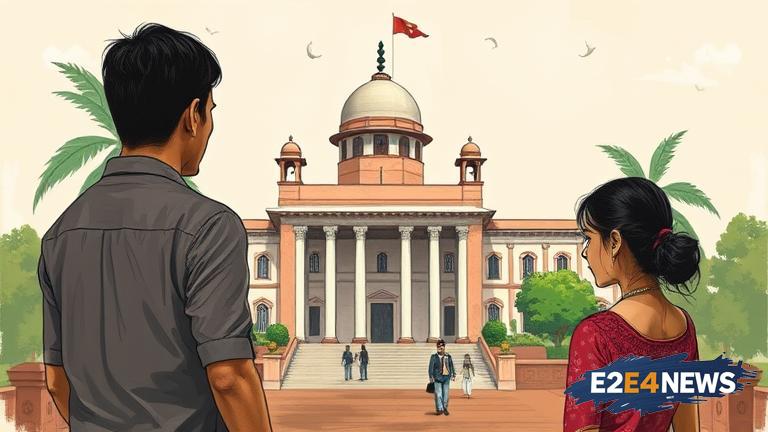The Bombay High Court has granted bail to a man accused of outraging the modesty of his step-daughter, noting that he has spent over three years in jail without trial. The court observed that the accused had been in jail since 2019 and that the trial was yet to commence. The prosecution had alleged that the accused had committed the offense in 2018, but the defense argued that the allegations were false and motivated by a family dispute. The court also noted that the step-daughter had not made any complaint against the accused until 2019, when she was allegedly coerced into making a statement by her mother. The accused had been denied bail on several occasions by the lower courts, but the High Court took a different view, citing the delay in the trial and the lack of evidence against the accused. The court also observed that the accused was not a flight risk and was willing to cooperate with the investigation. The bail was granted on certain conditions, including that the accused would not tamper with evidence and would not contact the step-daughter or her mother. The court’s decision has been seen as a significant development in the case, which has been pending for several years. The accused’s lawyer had argued that the delay in the trial was a violation of the accused’s right to a speedy trial, which is guaranteed by the Constitution. The prosecution had opposed the bail application, arguing that the accused was a threat to the step-daughter and that the evidence against him was strong. However, the court was not convinced by the prosecution’s arguments and granted bail to the accused. The case has sparked a debate about the need for speedy trials in India, where thousands of undertrials are languishing in jail without trial. The government has been criticized for its failure to provide adequate infrastructure and manpower to the judiciary, leading to delays in trials. The case is also a reminder of the need for caution in cases involving allegations of sexual assault, where the accused is often denied bail and subjected to a lengthy trial process. The Bombay High Court’s decision is likely to be seen as a landmark judgment, which could have implications for similar cases in the future. The court’s emphasis on the need for a speedy trial and the importance of granting bail in cases where the accused is not a flight risk is likely to be welcomed by human rights activists and lawyers. However, the prosecution is likely to appeal the decision, arguing that the accused is a threat to the step-daughter and that the evidence against him is strong.
